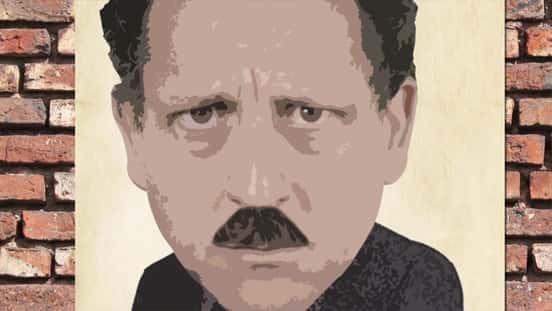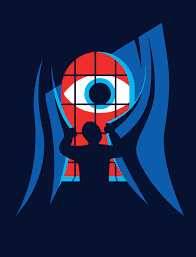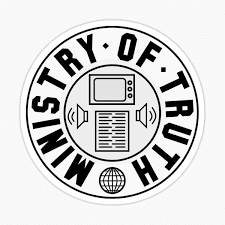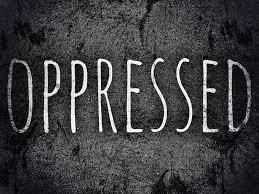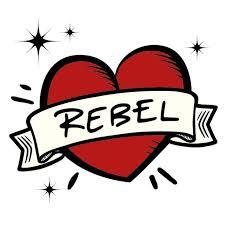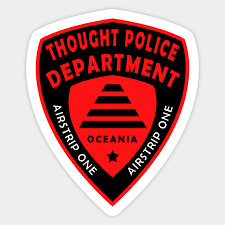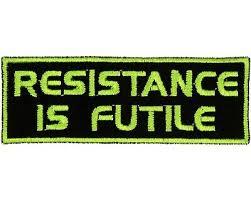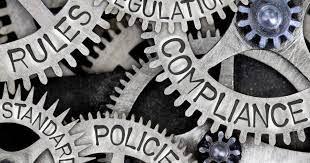Explore the World's Best Ideas
Join today and uncover 100+ curated journeys from 50+ topics. Unlock access to our mobile app with extensive features.
1984 by George Orwell
Eric Blair ("George Orwell")
Eric Arthur Blair (1903 – 1950), known by his pen name George Orwell, was an English novelist, essayist, journalist and critic. His work is characterized by lucid prose, social criticism, opposition to totalitarianism, and support of democratic socialism.
Blair was born in India, and raised and educated in England. After school he became an Imperial policeman in Burma, before returning to Suffolk, England, where he began his writing career as George Orwell—a name inspired by a favorite location, the River Orwell. (Wikipedia)
4
83 reads
How does the novel 1984 start?
The story unfolds on a cold April day in 1984 in Oceania, the totalitarian superpower in post World War II Europe. Actually, “Oceania” is a little too broad, seeing as the superstate encompasses the continents formerly known as the Americas, Australia, parts of Africa, and the British Isles. 1984 takes place on those Isles, now referred to as “Airstrip One.”
The ruling party is known as The Party. The Party is an ominously vague entity with an ominously vague mascot: Big Brother.
Big Brother is there to remind all the Party members and citizens of Oceania not to step out of line.
4
60 reads
Who’s the protagonist of 1984?
In this bleak backdrop, we find Winston Smith. He’s employed as an editor in the records department at the Ministry of Truth, one of the divisions of The Party created to push government propaganda (so, not truth). The Ministry of Truth deals in “Newspeak,” a Party-approved language system specialized in rewriting plain English into catchy slogans like “War is Peace,” “Freedom is Slavery,” and “Ignorance is Strength.”
4
70 reads
Winston at Home and Work
Winston Smith is depressed and oppressed. He starts a journal of his rebellious thoughts against the Party. If discovered, this journal would be considered a “thoughtcrime”—hence why Big Brother is always watching—and would result in his execution.
At work, Winston becomes curious about Julia, a machine-operator in the Fiction Department. The two begin a secret love affair.
As Winston and Julia fall deeper in love, Winston finds that his views about their government (the Party) change.
4
60 reads
Winston Rebels
Winston is drawn to the revolutionary "Brotherhood,” because, well, they're revolutionary. The Brotherhood is supposedly a group of dissidents led by the mysterious Emmanuel Goldstein.
In reality Emmanuel Goldstein is just be a fictitious “enemy of the state” created by The Party to help them rally citizens against “thought criminals.” Eventually, Winston makes contact with O'Brien, who Winston thinks is a member of the Brotherhood, but who in actuality is a member of the Thought Police.
4
58 reads
Winston and Julia Caught
Winston and Julia are apprehended by the Thought Police. The happy couple is then brought to the Ministry of Love, where criminals and opponents of the Party are tortured, interrogated, and "reintegrated" before their release and ultimate execution. O'Brien runs the show as far as Winston's torture sessions are concerned.
4
63 reads
How does 1984 end?
Months after being arrested, poor Winston Smith is sent to Room 101, where every person who enters is faced with their greatest fear. For Winston, it’s rats. Musing on the impending rats-chewing-on-his-face scenario, Winston calls out, "Do it to Julia!" That's pretty much what O'Brien was looking for, so Winston gets to go back to being a happy member of the rat race. Released, Winston's heart is filled with love for the Party. Even when he and Julia meet again by chance at the Chestnut Tree Café, they feel apathetic towards each other. He has been successfully converted and destroyed.
5
68 reads
George Orwell 1984 Quote
“Who controls the past controls the future. Who controls the present controls the past.”
-George Orwell, 1984
4
71 reads
IDEAS CURATED BY
CURATOR'S NOTE
1984 by George Orwell
“
Tom Joad's ideas are part of this journey:
Learn more about problemsolving with this collection
How to use storytelling to connect with others
The psychology behind storytelling
How to craft compelling stories
Related collections
Similar ideas
4 ideas
1984
George Orwell
32 ideas
17 ideas
Think And Grow Rich Summary and Concepts | Wealth Creation Mastermind
wealthcreationmastermind.com
Read & Learn
20x Faster
without
deepstash
with
deepstash
with
deepstash
Personalized microlearning
—
100+ Learning Journeys
—
Access to 200,000+ ideas
—
Access to the mobile app
—
Unlimited idea saving
—
—
Unlimited history
—
—
Unlimited listening to ideas
—
—
Downloading & offline access
—
—
Supercharge your mind with one idea per day
Enter your email and spend 1 minute every day to learn something new.
I agree to receive email updates
